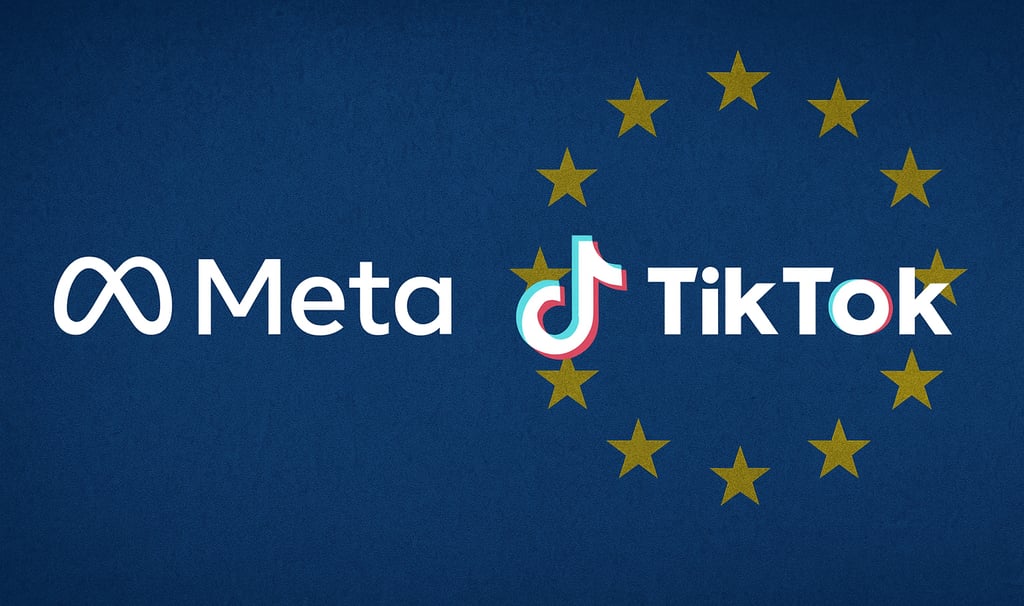EU Finds Meta & TikTok in Breach of Transparency Rules Under DSA | 24 Oct 2025
EU Commission says Meta and TikTok breached transparency rules under the Digital Services Act; fines may reach up to 6% of global revenue.
Raja Awais Ali
10/24/20252 min read


EU Preliminary Finds Meta and TikTok in Breach of Transparency Obligations
The European Commission has issued a preliminary finding that Meta Platforms (the parent company of Facebook and Instagram) and TikTok may have violated the Digital Services Act (DSA) by failing to meet required transparency and content-moderation standards.
According to the Commission, both platforms did not provide effective access to public data for researchers — a key requirement under the DSA. Additionally, Meta’s complaint-reporting systems for illegal content on Facebook and Instagram allegedly used misleading interfaces — often referred to as “dark patterns” — making it harder for users to report harmful or illegal material, including child-exploitation or extremist content.
A European Commission spokesperson stated that these practices could undermine users’ rights and hinder independent oversight, especially at a time when social-media influence is under global scrutiny.
Meta has denied wrongdoing, saying it has already made “significant improvements” to comply with the DSA. TikTok has yet to release an official response, but insiders note the company is concerned that some DSA transparency rules might conflict with GDPR privacy protections regarding user-data sharing with researchers.
Under the DSA, major online platforms are required to:
prevent the spread of illegal or harmful content;
maintain transparent, accessible reporting systems; and
provide researchers with controlled access to data for impact assessments.
If these preliminary findings are confirmed, Meta and TikTok could face fines of up to 6 percent of their global annual revenue. The Commission emphasized that these conclusions are not final yet — both companies will be given an opportunity to explain and adjust their compliance mechanisms before a final decision.
This development carries broader global significance. U.S. President Donald Trump has repeatedly criticized large tech firms for privacy violations and data manipulation, calling for stricter oversight — particularly against companies linked to China, such as TikTok. In this context, the EU’s stance represents a major warning to the global tech industry.
In essence, this case marks a turning point in the enforcement of digital accountability and transparency. With regulators intensifying scrutiny worldwide, Meta and TikTok are under pressure to demonstrate that they can uphold European legal and ethical standards in the digital-services era.
Stay informed with the latest national and international news.
© 2025. All rights reserved.